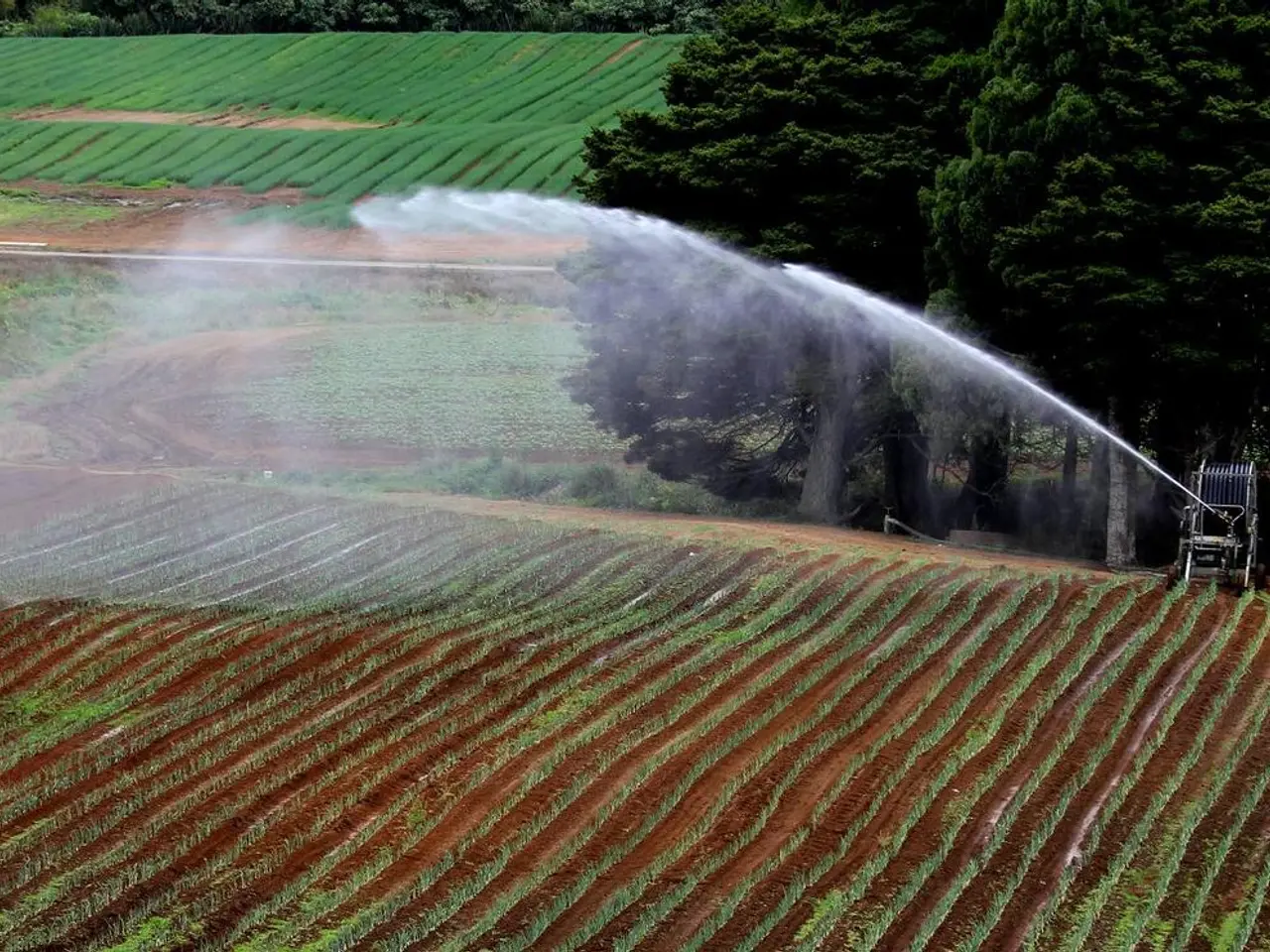Artificial Intelligence could aid Napa vineyards in adapting to extreme climate changes
In the world of premium wine, innovation and sustainability are intertwined more than ever. This is evident in the recent development of Scout, an AI-powered vineyard management tool co-developed by Kia Behnia, co-owner of Napa Valley's Neotempo Wines, and Matt Taylor, winemaker at Ink Grade.
Scout made its debut at a seminar preceding BBR's West Coast wine tasting, showcasing the 2022-vintage Trailside Vineyard Cabernet Sauvignon produced by Lawrence Wine Estates' CEO, Carlton McCoy Jr MS, and Burgundy winemaker Jeremy Seysses. The Trailside Vineyard Cabernet Sauvignon, described as a 'terroir-driven, age-worthy style that is an homage to Napa Valley's glory days of the 1960s and 1970s', was centre stage, but it was Scout that stole the show.
Behnia describes Scout as an 'x-ray for vineyards', a tool designed to help growers make the right decisions for their vineyards. Scout's AI platform processes large amounts of data, including photographs, to provide insights on the health of individual vines. It can predict yields, spot early signs of disease, and identify heat stress, all crucial elements for sustainable vineyard management.
Scout VIA, an AI vineyard assistant trained in viticulture and enology, delivers instant, science-backed answers to complex vineyard management questions. This enables growers and vineyard teams to act on data rather than fragmented or outdated sources, leading to enhanced monitoring of vine health, early disease detection, optimized resource use, and better yield forecasting.
Ink Grade, a biodynamic estate on Howell Mountain, part of the Lawrence Wine Estates portfolio that also includes Heitz Cellar and Haynes Vineyard, is at the forefront of this technological revolution. Matt Taylor, winemaker at Ink Grade, expressed interest in combining technology with sustainability approaches. The team at Ink Grade strives for elegance and balance, reminiscent of Napa's treasured wines of the past, while adopting a flexible approach based on reading vintage conditions.
However, Behnia raises concerns about the adoption of AI, stating that he opposes 'recipe-driven' wines. He emphasizes the importance of respecting winemakers' choices and argues for greater precision in vineyards to efficiently manage climate change impacts, alongside other approaches like sustainable farming methods.
AI and precision technologies, including AI analytics combined with drones, IoT sensors, and satellite imaging, are proving to be valuable allies in the fight against climate change. They help vineyards track soil moisture, nutrient status, weather, and vine water stress with high granularity, reducing water usage and inputs by up to 25% without compromising grape quality.
Furthermore, these technologies enable forecasting of disease and pest outbreaks linked to changing climate patterns, enhancing proactive interventions for better crop resilience. They also optimize labor and canopy management through automated, data-driven responses, improving operational sustainability.
Such technologies effectively support sustainable farming by lowering greenhouse gas emissions (through optimized inputs and resource use), improving environmental impact tracking, and enabling participation in emerging carbon markets or sustainability certifications.
In summary, AI-driven vineyard management tools like Scout enhance sustainability and climate adaptation by combining expert knowledge instantly accessible via AI, precise monitoring of vineyard health, early threat detection, and improved resource efficiency, which altogether help viticulture face the challenges of climate change and evolving market demands. As we move forward, it is clear that technology will play a crucial role in shaping the future of the wine industry.
- In the realm of environmental science, the innovative use of artificial intelligence (AI) in vineyard management, such as Scout, is proving to be a valuable asset in addressing climate-change impacts on winemaking, offering precision in vineyard health monitoring, early disease detection, and improved resource efficiency.
- The integration of AI in the wine industry, as exemplified by tools like Scout, is not just about improving yield forecasting and resource use but also about fostering a science-backed approach to vineyard management that can respond proactively to the challenges presented by climate change.
- The adoption of technological innovations like AI in wine investment, as demonstrated by Scout, is not about producing 'recipe-driven' wines but rather about enhancing sustainability practices, reducing environmental impact, and meeting evolving market demands, all while respecting the individual winemaker's decisions.




